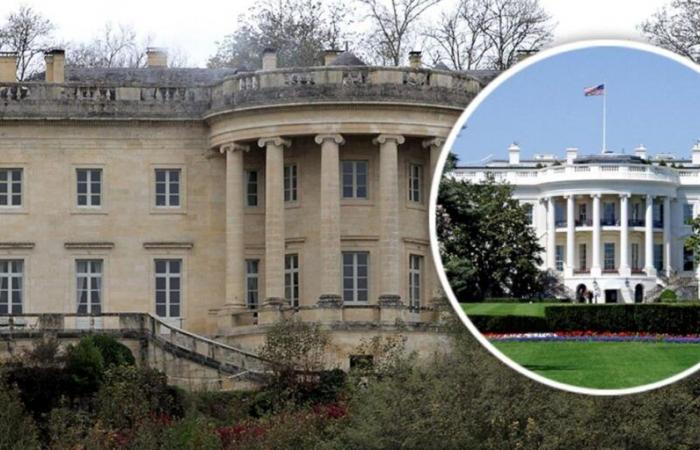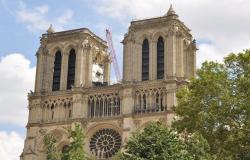Same colonnaded rotunda on the facade, same oval office (or living room), same staircase leading to the terrace, same Italian-style roof, same proportions used for the design of the facade… The palace of the American presidents, commissioned in 1792 by George Washington to the Irish architect James Hoban (1762-1831), and the castle rebuilt at La Bachellerie, for the Marquis de Rastignac, by the Nontron architect Mathurin Salat known as Blanchard (1755-1822), are strangely similar.
The first official White House guide, published in 1962, also suggests a link between Hoban's plan for the south portico, and Blanchard's plan for the Perigord building. But which one copied the other?
The influence of Thomas Jefferson
Founding Father of the United States, with among others, George Washington, Thomas Jefferson consulted the plans of the future Rastignac castle at the Bordeaux school of architecture.
Creative Commons
The chronology favors the “White House”. Its inauguration took place in the American capital on November 1, 1800, a few days before the Capitol, eleven years before the start of work at Rastignac. Furthermore, how could Hoban have been inspired by it, when he never came to France? We forget that the third American president, Thomas Jefferson, was ambassador of the United States there, from 1775 to 1789. We know that this great lover of architecture visited Bordeaux, where he saw Blanchard's sketches, kept in the school of architecture, and that, upon returning home, he was very involved in the choice of the White House project. And then, wasn't Washington's famous colonnaded rotunda, designed by Jefferson in 1792, built until 1824, well after that of Rastignac?
The Carrée house in Arlac, in Gironde
The problem, as one of its owners, the Dutchman Ronald Kerkhoven, confided in January 2021 to “Sud Ouest”, is that all the documents linked to the construction of the Perigord castle have disappeared… What is What is certain is that the two buildings are far from being unique in their kind.
Before seducing North America, the neo-classicism of their architecture was very fashionable in Europe, where it inspired numerous monuments. Starting with the famous Carrée d'Arlac house, also called Château Peychotte after its former owner, built in Mérignac, near Bordeaux, between 1788 and 1790. Its architect, Alexis-Honoré Roché, was appointed to the Dordogne after having 'have drawn.
What if it was Arlac who first inspired Rastignac? To this day, the mystery of the heritage treasure of Périgord Noir, reconstructed by the architect of historical monuments Yves-Marie Froidevaux after being burned during the last war by the Germans, and classified as a historic monument in 1951, remains intact.






